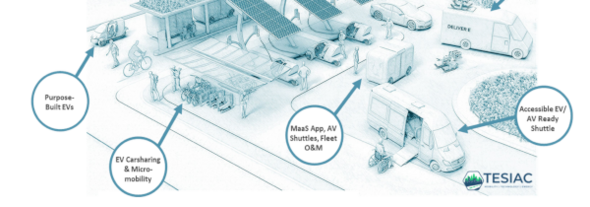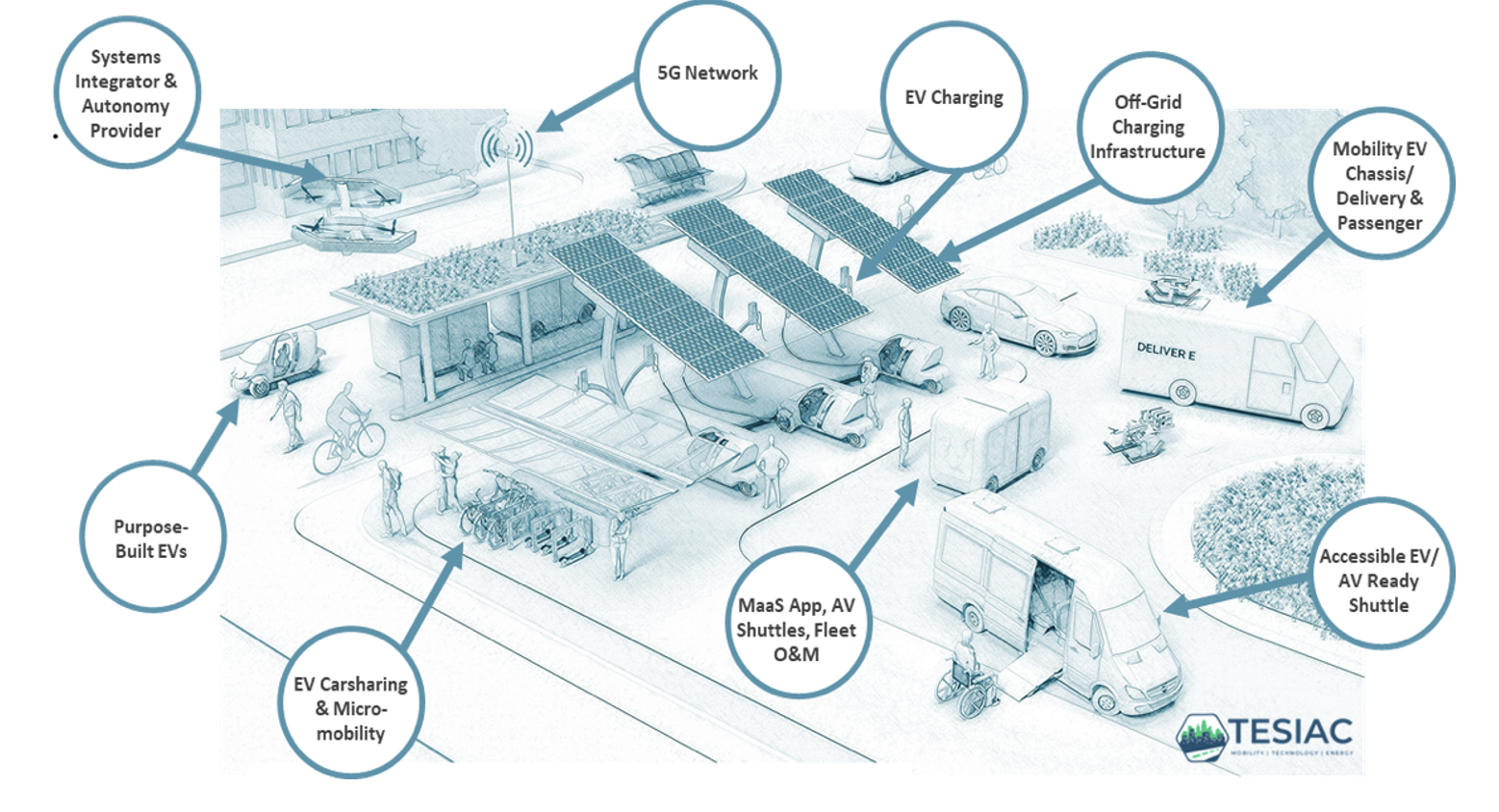Electric Mobility Lab: Difference between revisions
No edit summary |
No edit summary |
||
| Line 3: | Line 3: | ||
|imagecaption=SoCal TechBridge Electric Mobility Lab launch | |imagecaption=SoCal TechBridge Electric Mobility Lab launch | ||
|team-members=SoCal Tech Bridge, TESIAC, CANA LLC, Robotic Research, Verizon | |team-members=SoCal Tech Bridge, TESIAC, CANA LLC, Robotic Research, Verizon | ||
|poc=Andrew Morgan | |poc=Andrew Morgan, Karen Morgan | ||
|location_city=New York, New York | |location_city=New York, New York | ||
|status=Launched | |status=Launched | ||
Revision as of 19:29, January 25, 2023
| Electric Mobility Lab | |
 SoCal TechBridge Electric Mobility Lab launch | |
| Team Organizations | SoCal Tech Bridge TESIAC CANA LLC Robotic Research Verizon |
| Point of Contact | Andrew Morgan Karen Morgan |
| Participating Municipalities | New York New York |
| Sectors | Transportation Utility Broadband |
| Initiative | |
| Status | Launched |
| Last Updated | January 31, 2026 |
Summary
The EMS the Phase 0 Launch for the electric mobility initiative at Marine Corp Air Station Miramar. It included dynamic presentations from key government leaders on changing policies and plans, interactive panels with electric mobility thought leaders, as well as immersive demonstrations and discussions of technologies with industry-leading organizations.
The Electric Mobility Symposium (EMS) took place at Marine Corp Air Station Miramar in June 2021. The EMS brought together thought leadership from the DOD, Federal, State, & Local Government Officials, and the Private sector to discuss the impact of the the Electric Vehicle Revolution and how it will transform military bases and cities, making them connected, autonomous, and resilient. Hosted by the SoCal Tech Bridge and organized by a leadership team of private organizations including, TESIAC, CANA LLC, Robotic Research, and Verizon, the objective of the EMS was to validate, establish, and scale electric mobility on military installations through a proven ability to: provide personnel transport, package delivery, and mobile power; leverage electric manned and unmanned platforms; link micro-grids and mobility as a service; and leverage private capital and innovative contracting. Over the past years, Marine Corps Air Station (MCAS) Miramar has led in setting up the infrastructure to support this revolution. It is the right place and the right time to support future technology pilots and implementations.
The EMS the Phase 0 Launch for the electric mobility initiative at Marine Corp Air Station Miramar. It included dynamic presentations from key government leaders on changing policies and plans, interactive panels with electric mobility thought leaders, as well as immersive demonstrations and discussions of technologies with industry-leading organizations. It was an opportunity to learn more about how private capital investments and Infrastructure as a Service (IaaS) approaches can support energy, mobility, and smart cities’ technology needs. The success of this model is based on revolutionary partnerships and novel design processes to help determine the infrastructure, concepts of employment, and enablers to support the electric vehicle (EV) and autonomous vehicle (AV) revolution, and to help federal, state and local governments understand how they might transfer this technology to other bases and to neighboring cities.
Miramar’s existing 5G enabled networks, microgrids with multiple renewable energy sources, and autonomous vehicle proving grounds are open and ready. Now technology integration, electric fleet infrastructure, and investment models are being developed to create scalable and replicable models for smart and electrified bases of the future
 Links:
https://sites.google.com/canallc.com/electric-mobility-symposium/home
https://www.socaltechbridge.org/electricmobility-lab
Links:
https://sites.google.com/canallc.com/electric-mobility-symposium/home
https://www.socaltechbridge.org/electricmobility-lab